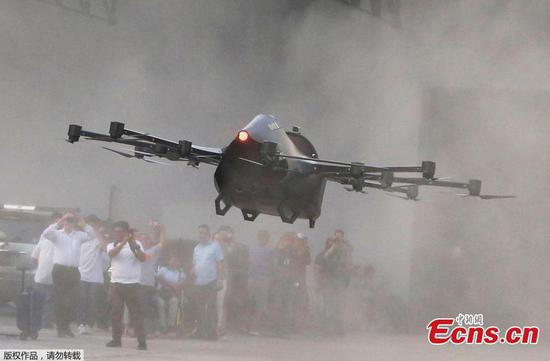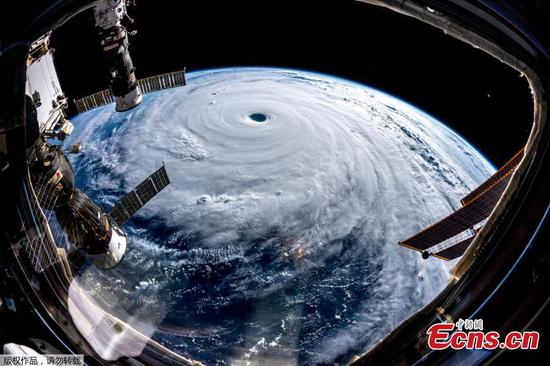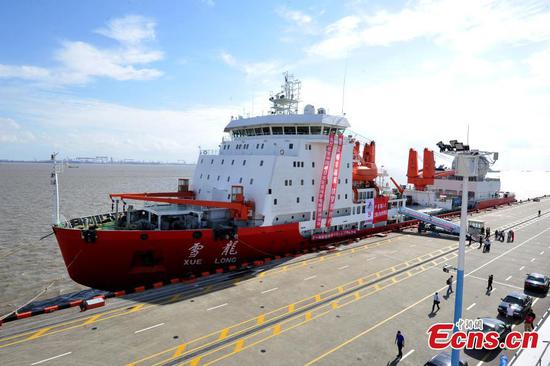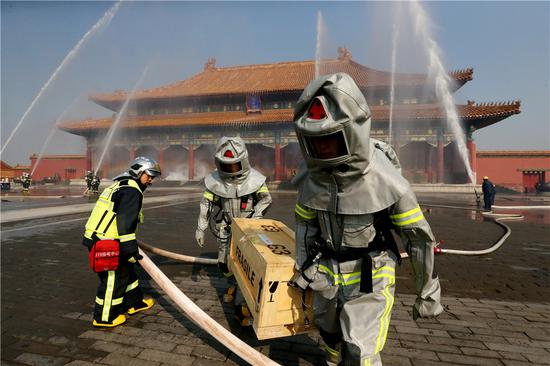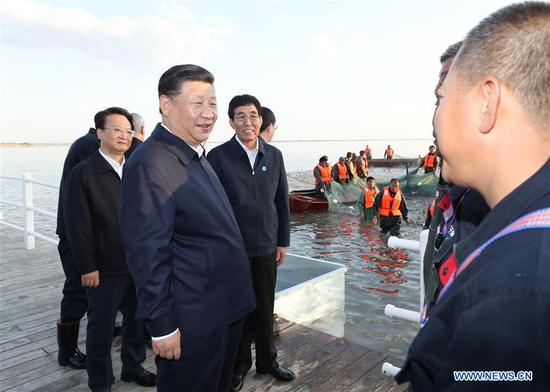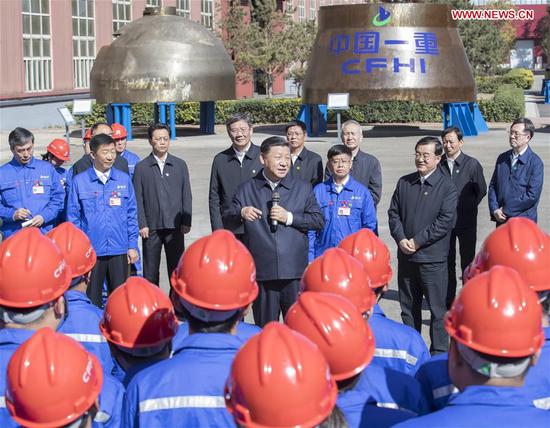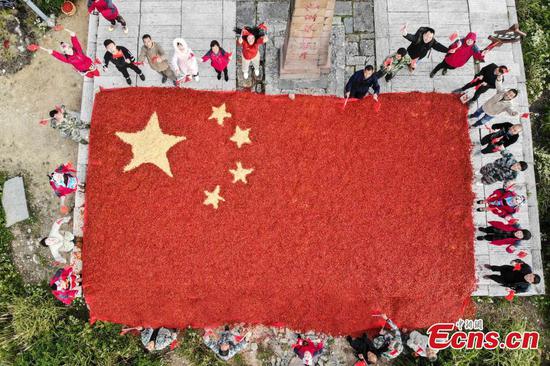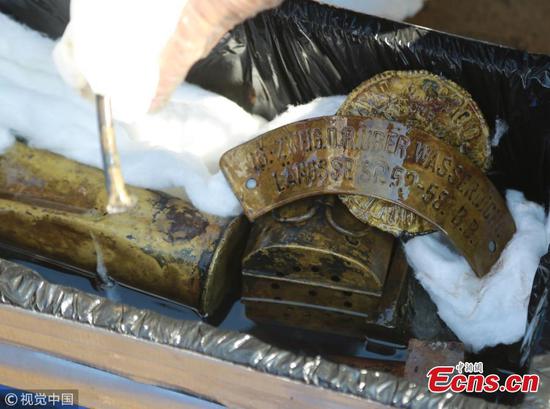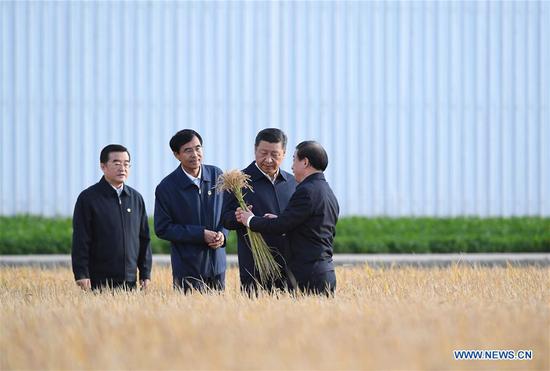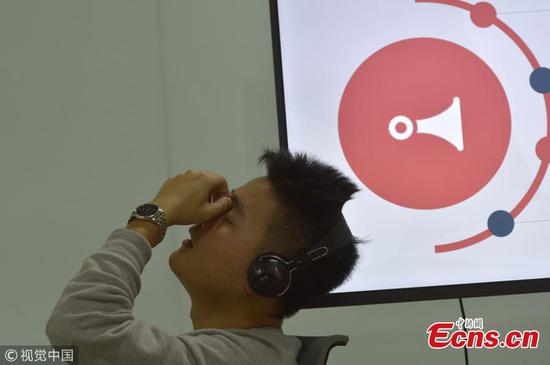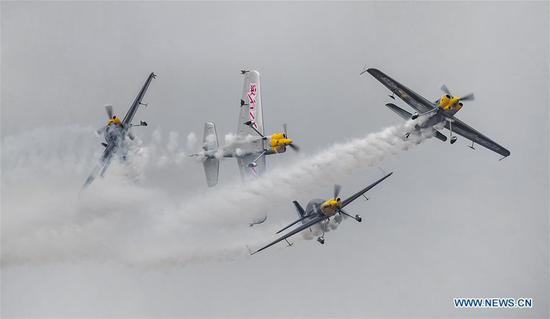The Ministry of National Defense said the United States is solely to blame for the recent rise in tension between the Chinese and U.S. militaries, and demands "rational" and "sincere" actions from the U.S. to work with China to improve military ties, a ministry spokesman said on Thursday.
Experts said the U.S. administration is using China to rally voter support for the upcoming U.S. midterm elections in November, and U.S. pressure against China will likely continue for the foreseeable future.
On Sept. 20, the U.S. State Department imposed sanctions on China's Equipment Development Department and its director for purchasing Russian Su-35 combat aircraft and the S-400 missile system.
In response, China immediately recalled Navy commander Vice-Admiral Shen Jinlong, who was in the U.S. attending a symposium and planned to have exchanges with high-ranking U.S. Navy officials, the ministry said in a statement on Saturday.
China also postponed the second meeting planned as part of a communication mechanism for the joint staff departments of the two countries, set for this week in Beijing, the ministry added.
"China highly values Sino-U.S. military exchanges across various levels, but we will not give in to threats," Senior Colonel Ren Guoqiang, a ministry spokesman, said in a regular media briefing on Thursday.
Ren added that cooperation with Russia on military hardware has not changed despite U.S. sanctions.
"The U.S. side is solely to blame for the recent damage in Sino-U.S. military relations," he said. "We urge the U.S. to show sincere efforts to improve Sino-U.S. military relations, and allow it to become a stabilizing factor in bilateral ties."
When asked whether the heightened tension could affect Defense Minister General Wei Fenghe's planned visit to the U.S. later this year, Ren said the U.S. should show "rational and mature attitudes in generating positive conditions for exchanges and cooperation".
Ren's remarks came amid heightened tensions between China and the U.S. over trade and security issues.
On Tuesday, the Defense Ministry strongly opposed U.S. sales of $330 million in military components to Taiwan, saying it interfered with China's domestic affairs and undermined Chinese sovereignty and Sino-U.S. relations.
The U.S. Air Force also conducted two B-52 bomber flights this week, one over the South China Sea and the other over the East China Sea, the Pentagon said on Wednesday.
On Sept 20, the U.S. leader unveiled his National Cyber Strategy, which labeled China a cybersecurity threat. U.S. Director of National Intelligence Daniel Coats warned on Tuesday during a cybersecurity conference that China is seeking to influence U.S. policies and carry out propaganda efforts in the cyber domain.
Ren said the accusations against China are baseless and full of Cold War mentality. China resolutely opposes them.
"China has always advocated the peaceful use of cyber technologies and opposed cyber warfare and a cyber arms race," Ren said. "However, the U.S. is groundlessly accusing other nations while boosting its own cyber force. This is a double standard."
Teng Jianqun, director of the China Institute of International Studies' Department for U.S. Studies, said: "Sino-U.S. military relations may not be deteriorating despite recent U.S. actions, but it is certainly entering an age of growing competition.
"In the short run, the U.S. administration is pressuring China to rally voter support for the upcoming midterm elections," he said. "However, in the long run, these measures are to ensure the U.S. gets an edge over China as the two large nations compete."










